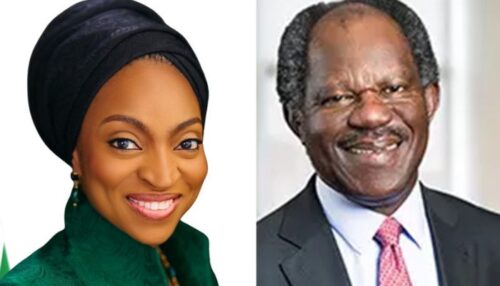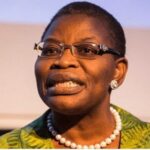As the 2025 World Economic Forum (WEF) wrapped up, Nigeria seized the opportunity to reinforce its position as a prime destination for global investment. Jumoke Oduwole, Nigeria’s Minister of Trade and Investment, engaged in a series of high-level meetings with influential global business leaders and policymakers, converting diplomatic discussions into potential groundbreaking economic prospects for the country.
At Davos, Oduwole’s efforts resulted in securing crucial alliances, including a major commitment from Adebayo Ogunlesi, Chairman of Global Infrastructure Partners. Ogunlesi pledged to spearhead a prestigious investment advisory group that will conduct biannual visits to Nigeria, engaging directly with President Bola Ahmed Tinubu. This initiative is expected to unlock significant foreign investment and steer economic growth.
Strategic Partnerships to Drive Economic Growth
Ogunlesi’s involvement marks a crucial step in Nigeria’s investment strategy, as he brings global credibility and influence to the country’s economic agenda. His commitment signals confidence in Nigeria’s evolving business environment and underlines the government’s reformed investment policies. Oduwole highlighted that Nigeria is on track to becoming a leading hub for investment, particularly in the digital economy and technology sectors.
The newly formed Global Investment Strategic Group, under Ogunlesi’s leadership, will focus on key industries such as infrastructure, technology, agriculture, and energy—sectors critical to Nigeria’s long-term economic growth. The initiative aligns with President Tinubu’s Renewed Hope Agenda, which aims to foster economic diversification and inclusive development.
Oduwole expressed her optimism about the initiative’s potential, emphasizing Nigeria’s readiness to facilitate meaningful engagements with international investors and leverage these relationships to unlock transformative economic opportunities. She also noted the importance of involving Nigerian business leaders in the diaspora to contribute their expertise and networks to the country’s development.
Corporate Interest and Global Partnerships
In addition to government-led initiatives, multinational corporations like Coca-Cola demonstrated a growing interest in Nigeria’s market. Oduwole’s discussions with Henrique Braun, Coca-Cola’s EVP & COO, and Zoran Bogdanović, CEO of Coca-Cola Hellenic Bottling, revealed the company’s plans to invest an additional $1 billion by 2030. This investment builds on their existing $1.5 billion commitment over the past decade, highlighting Nigeria’s potential as a key market for global brands.
To address regulatory concerns, the Minister assured Coca-Cola of dedicated government support to create a more investment-friendly environment. Both parties also explored opportunities in Nigeria’s digital economy and potential collaborations to scale export operations.
Further diplomatic engagements extended to Saudi Arabia and the UAE, where Oduwole held productive talks with key ministers, including Majid Al Qassabi and Thani Ahmed Al Zeyoudi. These discussions focused on strengthening trade relations, improving Nigeria’s business climate, and facilitating market access for investors from the Middle East.
Digital Trade and Economic Transformation
A significant milestone discussed at Davos was the finalization of the African Continental Free Trade Area (AfCFTA) digital trade protocols, set to be ratified soon. Oduwole emphasized Africa’s readiness to embrace digital trade and highlighted Nigeria’s role in positioning African businesses for global competitiveness. She stressed that digital platforms would help local businesses overcome traditional trade barriers and tap into broader markets.
By leveraging technology, Nigerian businesses can enhance supply chain efficiencies, improve market access, and contribute to the continent’s economic transformation. Oduwole pointed out the success of initiatives such as the Afrexim Bank’s payment system, which facilitates intra-African trade in local currencies, saving billions annually and fostering financial inclusion.
A Vision for Sustainable Investment
During various engagements at the WEF, Oduwole underscored Nigeria’s commitment to sustainable economic policies that attract responsible investors. She outlined three key pillars driving Nigeria’s investment agenda:
- Profitability in Africa – Attracting businesses focused on wealth creation rather than corporate social responsibility alone.
- Impact Investment – Encouraging investors to support projects that address social challenges at scale.
- Sustainable Development – Promoting environmentally responsible investment practices.
These principles are designed to ensure long-term growth while addressing pressing socio-economic challenges, such as job creation and talent development for Nigeria’s youthful population.
Looking Ahead
Oduwole’s presence at Davos sent a strong message to the global business community—Nigeria is ready for business and committed to providing a conducive environment for investment. Her strategic engagements with global stakeholders, coupled with the government’s policy reforms, aim to reposition Nigeria as a leading player in Africa’s economic transformation.
As the country moves forward, continued collaboration with international partners and a focus on innovation will be key to sustaining growth and unlocking new opportunities in the global economy.



